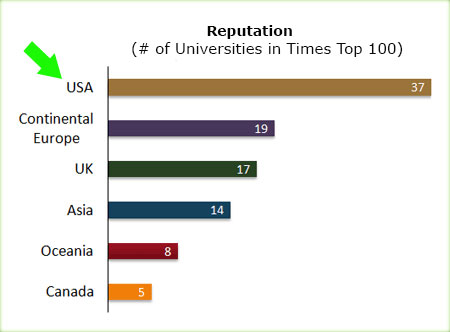Online Master's Degree Programs and Certificate Courses

Daily News reports online master's degree in business can equip students with leadership skills and industry connections that are vital for career advancement.
Bachelor's and above degree attainment tops 30 Percent for the First Time, Census Bureau Reports
For the first time in the history of America; in the year March 2011, approximately 30 percent of U.S adults of age 25 years and more attained education with more than U.S. Census Bureau reports. In recent past as 1998, less than one-quarter of this 30 percent were educated enough to reach this level. It happens to be a very important milestone that they have achieved. People with more or enhanced education have better chances to have a job/career and earn more to spend adequately on their living and education. It is a process which has started.
Census Bureau Reports Fast Growth in Ph.D.s and Master's Degree Holders.
The latest and new statistical figures ranging from 2002 to 2012 of the U.S. Census Bureau, the level which has experienced the top most education attainment is the doctorate and master's degrees. A steep increase of about 1 million or approx 45 percent in the population with a doctorate, whereas master's degree holders grew by 5 million, or approximately 43 percent was registered with the census Bureau. During the same time frame the people with an associate degree grew by 5 million or approximately 31 percent. The growth experienced by doctorate and master's holders were nearly similar to one another.
The figures also indicate that the trend, where education continues to pay off still continues. Adults aged 25 and more with average earning of $59,415 were the ones with a bachelor's degree (no graduate degree) in 2011, in contrast to those adults with an average earning of $32,493 but with a high school diploma, however no college. The ones with a Master's degree or a Doctoral degree were on top of the chart.

What is a Master's Degree?
Graduate Degree or graduation is the terminology used in America for studies undertaken by an individual post attaining the bachelor's degree. Top accredited online master's degree programs addresses and matches the post-graduate or advanced education stages in few more education set ups. Education at this level in America can is of two variants:- Professional studies – Students with undergraduate degree eligible
- Research studies - subsequent education to either a bachelor's degree or a professional degree.
- Master's degrees attained as a basic professional qualification.
- Master's degrees awarded as terminal degrees.
- Advanced research degrees in academic or professional fields of study
Research Master's Degrees
These Master's degrees are the ones which are awarded in the academic segment and practical investigation fields for study and research for a tenure of 1 to 3 years ahead of, either the bachelor's degree or the first-professional degree. Requirements of the discipline and the institutional faculty including various fields related to the subject of study plays a major role in deciding the length of the program.Research master's degree has 3 stages:
- Successful accomplishment and justification of an independent thesis
- Exceeding the wide-ranged assessment set by the graduate faculty
- Successfully accomplishing assigned projects.
- Contribution towards seminars and courses - if applicable and required.
Professional Master's Degrees
These degrees are the ones with basic requirements which are delivered and taught with regular addition of administered projects/testimony. They do not comprise of academic research.Focusing solely on the educational goals, a lot of professional fields offer the facility to students for enrolling in either a professional master's degree program or a research master's degree program.
USA stands its own reputation when it comes to Master's degree.

Master's Degree Titles
It happens to be a universally known fact that the U.S. degree titles are the ones which are not administered by national laws, so an institute may implement varied prudence in the classification it exercises for degrees. Accredited relations also may have its impact on the degree titles. There are 2 proven ways of telling, if a master's degree signifies research work or professional studies. One has to be either familiar with the syllabus of the awarding establishment or one needs to scrutinize the academic records to assess what prerequisites of the syllabus were met with by the student.Some of the widely known and more often opted master's degree programs are:
- ( Th.M.) - Master of Theology - generally a research degree but may also be professional.
- (M.S.W.) - Master of Social Work - usually a 2-year professional degree.
- (M.S.N.) - Master of Science in Nursing - usually a professional degree, also awarded for research.
- (M.S.) - Master of Science - awarded for both research-professional studies in a variety of subjects.
- (M.P.H.) - Master of Public Health - usually a 2-year professional degree.
- (M.M.) - Master of Music – 2 to 3 year degree in music that is usually professional (performance) but sometimes may be a research award as well.
- (M.L.S.) - Master of Library Science - a 2-year professional degree.
- (M.F.A.) - Master of Fine Arts - a 2-3 year professional degree in studio, applied, or performing arts usually considered a terminal degree.
- (M.Ed.) - Master of Education - awarded for both professional and research studies in education subjects.
- (M.B.A.) - Master of Business Administration – Usually 2 year professional degree in management.
- (M.A.T.) - Master of Arts in Teaching - generally a one-year professional degree.
- (M.A.) - Master of Arts - usually, but not always, awarded for research studies in a variety of subjects.
- (M. Arch) - Master of Architecture - usually a 2-3 year professional degree.
- (M.A.) or (M.S.) - Master of Psychology
- (MCIT) - Masters in computer science and information technology
Why a Master's Degree?
Privileged individuals from colleges of postgraduate studies, able to manage the time and finances required to continue their studies over and above the post graduate stage or the ones with the financial aid helping to do so, are the ones who are supposed to be prepared to cultivate that extra edge academically. Master's degree programs usually are of a tenure ranging from one to three years - where students get the opportunity to enhance their skills with respect to their field of interest and knowledge. There are plenty of rewards for those, who are all set to plug in those extra efforts. Some of them are listed below for the benefit of one and all:- Further Studies: Students seeking careers in academics or attain the heights of any of the professions, master degree becomes mandatory for a doctorate or in any case to advance your career. One might come across alliances that are skeptical about admitting students without a master's degree for a PhD program. It also helps individuals to develop associations with colleagues; and also cultivate links with your seniors and tutors with expertise in the same field.
- Improved Earnings for better life style: Earnings as projected by the a bachelor's degree, the U.S. Census Bureau, an employee over a forty year working life - with a master's degree will earn an average of $2.5 million; however a bachelor's degree holder in the same time frame would earn approximately $2.1 million. Professional and Post graduate degree holders earn better as compared to others - in this increasingly competitive job market.
- Passion to Learn: Individuals with that zeal to learn more about their subject enhance the knowledge and sharpen their skills - are truly commendable. In today's capitalist society that we live in; reciprocates and acknowledges only the monetary weight age attached for attaining a degree. However, the education attained should not be only about the earning power one gains after the completion of studies, but it should be more inclined towards the contributions and benefits one provides to the society through the passion to learn more.
- Resultant Skills: Individuals at a post graduate stage, consistently but unknowingly are in the process to enhance their skills which are required for further education. In case that is not the plan, still the efforts put in the research work, writing and communication skills picked up during the process to achieve the syllabus, are easily endorsed to various aspects of life including the work place and personal life. Relationship management and expectation settings with peers, superiors and tutors; are also developed for future benefits.
Selecting a Master's Degree Program
A lot of research; is what goes in while selecting a Master's degree program as it is a crucial decision which should be worth all the time, money and opportunities one spends. During the time of selection appropriate research about the best-paying and worst-paying master's degrees needs to be done.- All the colleges, universities and institutions have varied standards, benchmarks, policies and procedures for various postgraduate-level study courses. To play safe one is advised to opt for a degree that offers maximum flexibility with regards to all the aspects.
- Well decided approach on to a traditional or a nontraditional segment of degree proves more helpful. Traditional degrees include Business, Law, medical or education whereas; nontraditionally one can opt for Child development or Early childhood Education and many more.
- Most researchers are of the opinion to bring about a variation in attending the graduate schools at various colleges and not only from where you attained your undergraduate. This is so as it gives you to experience ample opportunities with various teachers, their teaching styles and varied perspectives of students, environment and teachers.
- A faculty advisor would prove to be the identity who may lead you through; as is the one whom you would prefer to meet each quarter or semester basis your college schedule and brainstorm the necessities for successful accomplishment of your master's degree program.
- It is on sole discretion of the learner whether the individual would opt for a graduate school immediately after bachelor's or would follow the wait and watch theory to reassess and reconfirm the goals with a more matured attitude and research about the school.
- Audit your finances; in order to help you pay for your graduate school. Spend time having a look at the tuition fees and apply for Financial Aid - if eligible and required.
- Assessing the facilities, by visiting some schools and taking a view of the students and faculties is better idea before taking the final leap.
- Nothing serves better than selecting the Master's Degree program that suits your needs and future goals - together.
Tips & Warnings
- Adequate research is must as a few of the colleges may have better standing and former students' networks as compared to others - consider it.
- It is been observed that the colleges. while you move from West coast to East coast; reciprocate least expensive to most expensive when it comes to the tuition costs.
- Departmental head of the desired school may prove to be the right person for knowhow about the school and at times may help to get you a recommendation for the graduate program as well.
- For students who do not have a promising GPA for the Master's degree program - need not lose hope. Instead should opt for a few classes that might help them enhance their GPA to get to the next level.
